Every time a bring up the subject, what is exploration and how do you define it, I get a lot of response and emails. I have earlier written and published articles on the subject. And it is a subject which makes people within the genre very active. Today I see many older explorers, not fully understanding the kind of new era of Big Brother, where you really don´t have to do anything, but can call yourself an explorer and market yourself as such. The only Expedition you might have done, is doing television attached to the word Expedition, when in reality, these are as far from a real expedition as one can imagine. So there´s quite a few people out there getting upset. And, unfortunately, with this comes a lot of personal attacks and vicious words from people who feel stepped on. It is such a big subject! Therefore, I am happy to introduce to you readers a very interesting look at this big issue written by Earl of Bonville!
Adventure and Exploration: Conflict or Collaboration?
By
Earl de Bonville
A journalist with a major city daily asked how I became an adventurer. At the time, 1978, the word ‘Adventurer’ in Australia referred to shady characters who took big risks on the stockmarket. Australia was then a culturally empty space, with money the only measure of a man. Our proud history of exploration, no more than 100 years old, was of a handful of men with no training and poor equipment who had through sheer grit prized open the secrets of an empty continent one and a half times the size of Europe. Not only was all that heroic era now forgotten but was in any case irrelevant to a shallow, consumerist and status hungry society.
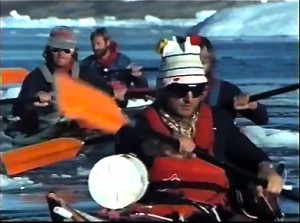
As a professional mountaineering instructor, trained by some of Britain’s biggest names in exploration, I realized the journalist was ill-informed, and corrected him. ‘I am not an adventurer’, I said. ‘I’m an explorer”, which was pretty challenging. But I explained that adventure is about seeking thrills, whereas exploration seeks knowledge and understanding. The next day, much to my surprise, his piece duly described me as an explorer, and the term thereafter was applied to other spirited people who journeyed with a higher purpose. Surprisingly, a new public fascination and admiration emerged, which had profound repercussions on subsequent sponsorship and media support for expeditions, including my own.
Not only was this a breakthrough in re-establishing a public consciousness for the incredible achievements of our early explorers, but it also awakened an awareness of the elements of exploration that lay within the Australian cultural DNA: courage, persistence, vision, great comradeship and an uncanny ability to invent solutions to seemingly intractable problems. Stories were told of repair miracles using fencing wire, straightened nails and tree limbs; of following birds to hidden waterholes at dusk and in one case of surviving an entire desert crossing by cutting meat en route from the flanks of live pack animals. A light had been thrown on a forgotten facet of our society and overnight this simple correction opened up new opportunities for adventurous ambitions, and in time saw Australian adventurers and explorers reach out across the globe and firmly stamp an international awareness of Australia.
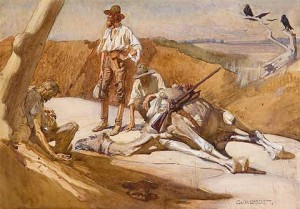
I believe the key to this cultural change lay in one thing, the grasping of the importance of higher purpose. Adventure, certainly in its modern context, can be easily understood to benefit adventurers themselves, whereas the very word ‘exploration’ is redolent with probing and uncovering geographical, scientific and cultural mysteries, of spending sometimes years beyond contact, and requiring the most extraordinary range of skills, including linguistic, animal husbandry, cultural and leadership, and personal qualities such as extreme long term vision and perspicacity, tolerance and courage. Ultimately, exploration benefits others by extending the boundaries of the known world.
It is higher purpose that gives meaning to my own journeys. I was once asked why I would go off and do seemingly dangerous things. I answered by saying that in my view, I don’t do dangerous things at all. Danger scares me, so I only do things I know I can do without risk. I also explained that I am not driven by a need for adventure, but by curiosity. I want to peek over the distant ridge and see what’s in the unexplored valley. Yes, we can get caught out by extremes of weather and unexpected events, and it’s good to know that we can always survive, no matter what, but it’s curiosity that makes a trip worthwhile for me. Not only that, but being able to travel in the footsteps of great explorers, and appreciate the rawness of their achievements, is a wonderful opportunity to extend one’s knowledge of what it is to be human.
Much diverse opinion has been offered on this relatively new debate, including what has become a polished chestnut: ‘But haven’t all the world’s wild places been explored?’ To those with televisions it seems a self-evident truth, but is this true?
A few weeks ago I was invited onto a prominent radio show to discuss the question: ‘Is there anything left to explore?’ Although my experience is limited, compared to many others, I could think of half a dozen places I know that have never seen a European or a scientist. Places unexplored that may well yield some great results for science, yet are next to impossible to get to.
To remind myself, I checked one of them on Google Earth and was surprised to find the images looked nothing at all like the photos I took when I flew over it in 1985, doing some aerial reconnaissance for the 1988 RGS Kimberley Research Project. Google offered a bland rounded hillscape, yet in reality the place is a jumble of deep gorges. How could the two images look so different?
The answer can be explained using another example.
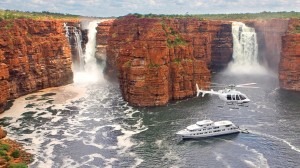
When the IPCC 4th Report was released in 2007, it predicted that the Arctic Ocean’s summer ice cover would disappear by 2050. Amid an uproar, this was amended to 2030. Professor Ted Scambos of Colorado Snow and Ice, knowing that the IPCC’s modeling was badly flawed went up to the sea ice and conducted his own ground truthing. His prediction, based on actually being there? All gone by 2015. Big difference and so far, right on track. So, we can have all the computer modeling we like, but without a reality check, people end up arguing over falsehoods.
Being there IS the difference, which is what exploration is all about. And being there was the difference between satellite imagery and my low-level overflight in the Kimberley, where my camera was only 500 feet off the ground. The RGS expedition leader, Professor Andrew Goudie, was amazed at the images I presented saying he had not seen anything like them outside Antarctica. This is but one example, and I could offer many more, all adventurous, but all of them focused on exploration.
Accepting that adventure is a wonderful, worthwhile and immensely satisfying pursuit is important, as it rewards individual adventurers with rich experiences and personal growth, but alone it is not exploration in the grand scheme of things.
Exploration is characterized by greater commitment, longer involvement and higher purpose: things learned, secrets revealed, inconsistencies clarified, shapes measured and concepts tested. Exploration can be safe and thus deadly boring (although boredom can be dangerous), or it can be highly risky and involve immense discomfort, months or years of uncertainty and deliver the explorers with little more than personal satisfaction at the end of it.
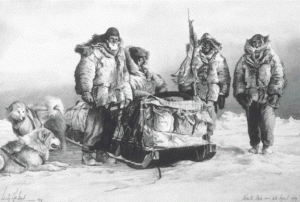
I think of my dear old friend Wally Herbert, and the almost unimaginable lengths his team went to, whilst overwintering on an icefloe, to conduct valuable science while making the first crossing of the Arctic Ocean. Afterwards, their names were soon forgotten by the public. Another friend, Geoff Somers, has had enormous experience at both poles supporting scientific fieldwork. By any measure he is a great explorer, as his dog sledge crossing of Antarctica with Will Steger testifies, but his humility ensured he was not out screaming for attention afterwards. The expedition was itself so personally rewarding that no public acclaim could possibly make any difference.
And maybe that’s the missing piece of the puzzle. Adventure, and its modern competitiveness, fails to intrinsically satisfy, which may explain why after the adventure people seek additional peer recognition and public acknowledgement, even to the point of severely criticizing other adventurous ‘competitors’. Conversely, exploration at heart intrinsically satisfies the individual human curiosity that originally nurtured and drove it. The word ‘Fellowship’ at the RGS means exactly that: sharing and support, based on mutual respect for courageous journeys with a sense of higher purpose.
Fame and acknowledgement are naturally part of both adventure and exploration and the issue is one that occupies minds well beyond the outdoor setting. For example, in my executive coaching work I often ask clients to consider these three questions:
– What do you want to be famous for? We can all be famous for something, including being famous for nothing. It’s important to remember that you do have many choices regarding what you’re famous for.
– How do you want to be remembered? Will it be for hiring hundreds in the sun and then sacking them when it rained? Will it be for sacrificing your ambition for a higher ideal, such as your family’s happiness? Or might it be for discovering and promoting the best people to rise to their potential?
– How long do you think you’ve got? A reputation can be made or lost in an instant. If you realized how uncertain your life was, what would you do right now?
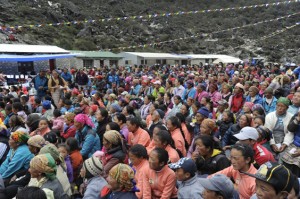
In helping to clarify the distinction between the immediacy of adventure and the longevity of exploration, the two ‘first’ ascents of Everest are instructional. In 1953, after continual failures to summit due to altitude affects, human limitations, weather problems and sheer bad luck, had many experts wondering if it could ever be climbed. So the successful British ascent was just as much scientific exploration into human capacity at altitude as it was straight mountaineering adventure. And the hero of the day, Edmund Hillary, far from using his fame as ‘the first man to conquer Everest’ to seek personal glory, instead used it for the rest of his to life to improve the welfare of the Sherpa people, raising money to build them schools, medical centres and an airport to draw tourists and enrich their local economy. Out of adventurous exploration, he chose a life of higher purpose. In contrast, Peter Habeler and Reinhold Messner who, by climbing Everest without oxygen in 1978, the second ‘first’, achieved an extraordinary scientific and medical breakthrough, yet disappeared from popular view afterwards simply because there was no higher purpose to their climb other than adventure. This is not criticism, but distinction for clarification.
A final thought comes from my old kayaking mentor Jim Hargreaves, from when we worked at the British Mountaineering Centre in North Wales in 1977. A former joint-services canoeing and kayaking champion, Jim had been trained by an Olympic coach who gave him a powerful philosophy, which he passed it on to me: “You will not be judged by your performance alone, but by your ability to train a suitable successor”.
What Jim and his Olympic coach were saying is that whilst in sport and adventure we are called on to do our very best, history will record that it is never just about us. If we are to truly endure in the hearts of others, rather than shrink to a statistic, it will be through ensuring that the successor we choose is better, faster and stronger than we could ever be. And that will be our measure of greatness.
It’s something for us to consider. When thinking about the differences between adventure and exploration – both worthy ambitions – perhaps we can be guided by Shakespeare’s immortal words: ‘There is nothing either good nor bad, but thinking makes it so’.
© Earl de Bonville 2012
Earl de Blonville is a Doctoral researcher into leadership, and a senior executive leadership coach. In 1986 he led Australia’s first Arctic expedition, with HRH The Prince of Wales as patron, and has explored half of Greenland’s navigable coast. In 1988 he was Director of the Tall Ships spectacular that officially opened Australia’s Bicentenary to an international television audience. His critically acclaimed book Seventh Journey provides valuable leadership insights for both expedition leaders and business executives. A Fellow of the Royal Geographical Society since 1984, he has advised successful Arctic, desert and maritime expeditions.
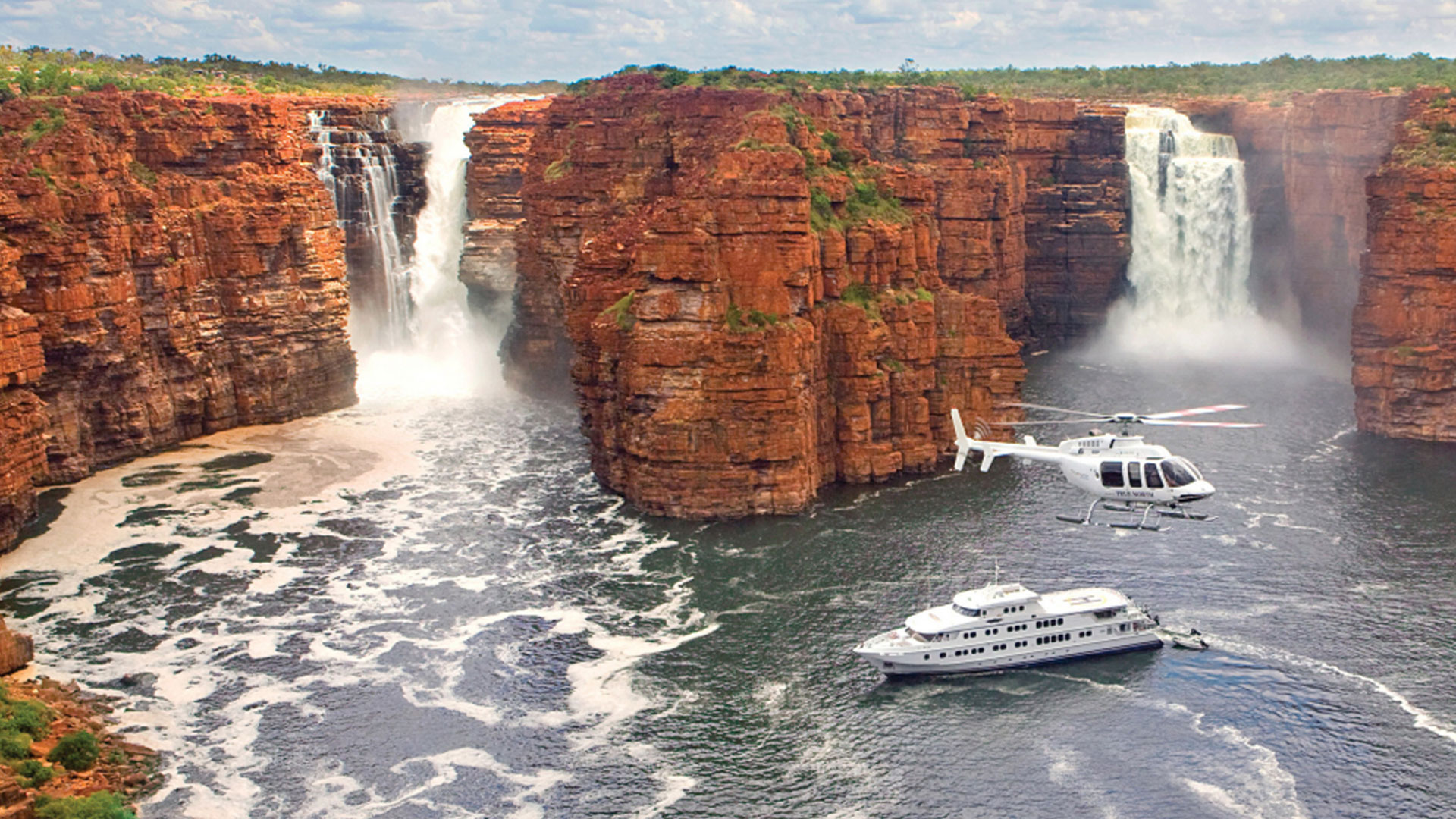
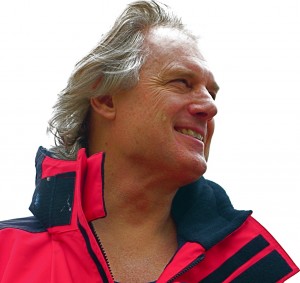

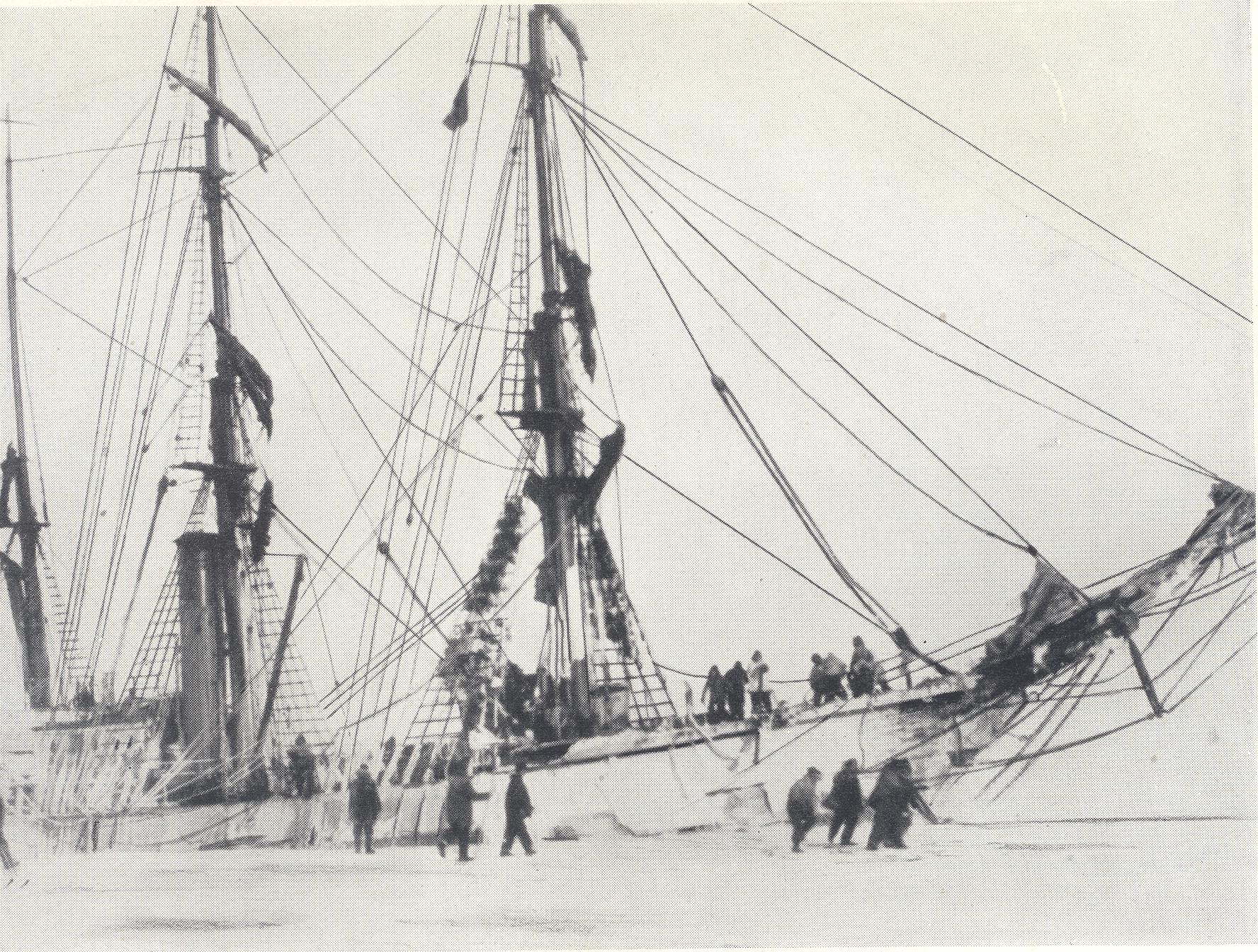
Well, for whatever my comment is worth, here goes. I’m a bit tired (embarrassed to be saying that to an explorer), so I hope I am coherent. Ordinary people like me may not go very many places in the world. We think we have so much information via TV, radio, and internet, but much of it is either outright false or such a small bit of the picture as to be mis-representative. For example, I might believe the myth that French people are rude if I based it on a short trip to Paris. But if I go to the countryside, I would find the people are quite warm and sociable. I won’t even talk about TV or other media accounts because those can be over-produced and biased. There has been much discussion on Facebook today of Bear Grylls. If only these critics would read about real exploring, the inner critic would be silenced and the inner child, full of wonder at this marvelous world, could be awakened. Then there is the question of what an explorer is. He or she is a type of social scientist mixed with philosopher because to exist in another social or physical landscape, I imagine one has to become part of it or at one with it. Earl de Bonville said, ” But I explained that adventure is about seeking thrills, whereas exploration seeks knowledge and understanding.” That is so different from what Americans perceive exploration to be. A book that influenced me a lot some time back was Peter Fruechen’s Book of The Eskimos. Reading about an explorer’s experience opens a whole new understanding of others. I didn’t even feel I knew modern explorers exist because I thought there was nothing new to discover. And I have you to thank for that. It is unbelievable the stories you tell, the videos, articles. So, I learn so much and it is enjoyable.
In such a world our appetite has never been greater for the intricate, the uncertain, the challenging, the uncultivated, the razor-sharp, the bizarre, the astonishing, the precarious, the grimy, the rough, the untameable, the intangible, the hazardous and the mysterious.
A silken worded forensic breakdown on a sizzling subject. Bravo!
An interesting insight, well put. Having in the past been described at times, as both an “Adventurer” and “Explorer”, I am often confused about the latter? My definition of an “adventurer” is simply a person “undertaking an activity with an unknown outcome” , even riding a bike for the first time!…now I have gained another perspective on “explorers” which suggests a person undertaking an activity that “extends the boundaries of the known world”. Thanks..more food for thought.The only thing I would say, is that in my own experience, all my expeditions, whether adventure, or exploration, are all intrinsically satisfying to me.
Dear Reader! I am receiving quite a few emails right now from people with very bitter comments on individuals or organisations, THIS IS NOT the forum for these comments and will therefore not be published. M